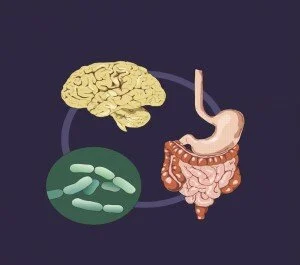Anyone who has ever been subject to chronic stress knows that it can take a toll on emotions and the ability to think clearly. Now, new research uncovers a neural mechanism that directly links repeated stress with impaired memory. Continue reading
Category Archives: Neuroscience
Brain Scans Can See What You See
Mind-reading has always been a fantastical feat, possible only in fictional realms such as Marvel Comics (X-Men‘s psychics Professor X and Jean Grey), Madeleine L’Engle’s A Wind in the Door, or Robert A. Heinlein’s Stranger in a Strange Land. However, technology is advancing rapidly, and since the advent of brain scanning techniques such as fMRI–which, for those who are unfamiliar with the term, stands for “functional Magnetic Resonance Imaging” and works by showing blood flow to different areas of the brain–humans have come progressively closer to creating technology that can peer inside their own minds.
Until recently, the most researchers have been able decode is stationary objects–such as when subjects viewed an image of a tree. This is due to the fact that fMRI detects blood flow, which moves slowly compared to the fast-paced neural activity that happens when a subject views moving images.
However, in a study recently published in Current Biology,1 researchers at the University of California demonstrated that by using a complex computer program that filled the gaps in data to approximate fast-paced neural activity, they were able to recreate elements of moving visual scenes from fMRI data. Continue reading
A Gut-Full of Probiotics for Your Neurological Well-Being
Probiotics, often referred to as ‘good bacteria’, are known to promote a healthy gut, but can they promote a healthy mind? Exploring the new world of neurological probiotics, researchers in BioEssays present new ideas on how neurochemicals delivered directly to the gut, via probiotic intestinal microbiota, exert their beneficial effects in maintaining gastrointestinal health and even psychological well-being.
 The research, led by Professor Mark Lyte from Texas Tech University Health Sciences Center,1 proposes that through a unifying process of microbial endocrinology, neurochemical-producing probiotics could act as a delivery mechanism for neuroactive compounds that could improve a host’s gastrointestinal and psychological health.
The research, led by Professor Mark Lyte from Texas Tech University Health Sciences Center,1 proposes that through a unifying process of microbial endocrinology, neurochemical-producing probiotics could act as a delivery mechanism for neuroactive compounds that could improve a host’s gastrointestinal and psychological health.
“This paper proposes a new field of microbial endocrinology, where microbiology meets neuroscience,” said Lyte. “There is already evidence to suggest that the connection between gut microbes and the nervous system represents a viable route for influencing neurological function. A recent study in mice, for example, showed that the presence of neurochemicals such a serotonin in the bloodstream was due to direct uptake from the gut.” Continue reading